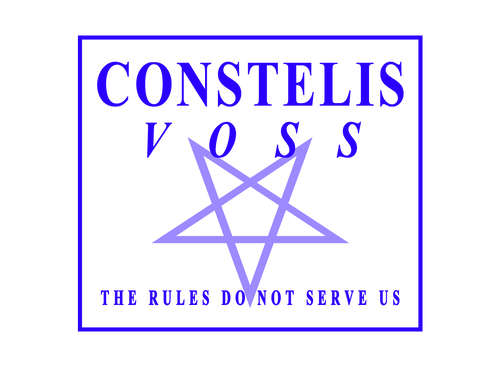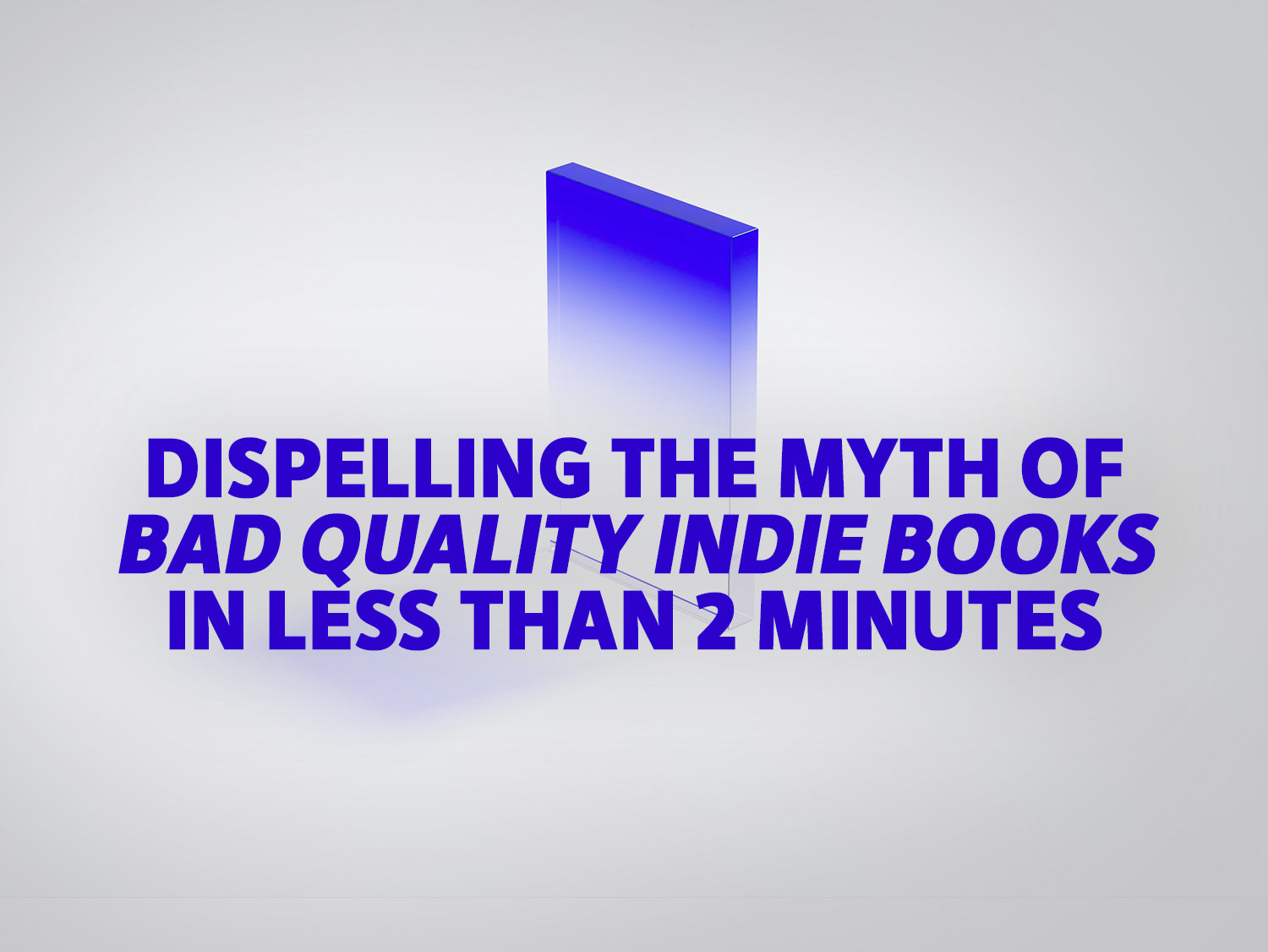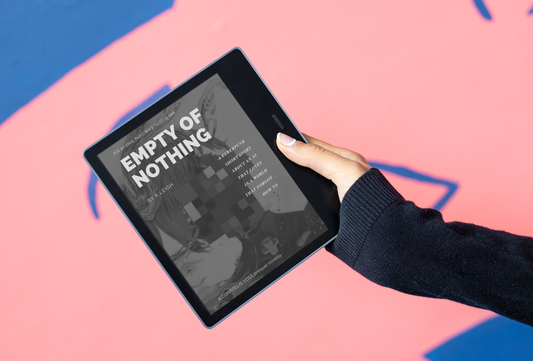Someone is wrong online. They are so wildly wrong, you feel compelled to counter how wrong they are. On small social media sites without algorithms, this isn't that big of a deal. On mainstream social media that has algorithms, this only serves to help grifting shit heels.
Let me explain.
When someone is wrong on Twitter, LinkedIn, Facebook, Threads, Instagram, or TikTok, all you do when you counter them on those platforms is boost the Wrong Shit in question. Now hundreds, if not hundreds of thousands of people—if not the news—are all going to want to chastise the motherfucker, thus giving said motherfucker digital clout.
Congrats, you got played. The grifting shit heel has gone viral. Now everyone knows their name. They have successfully evolved into a digital object of online warfare. Online warfare that fascists are far better at than anyone else. Leftists would never (OK, we very rarely) stoop to the levels the fash have. The fash have no shame. We do (mostly).
So, when someone is wrong online and there is a possibility you could help their bad ideas catch fire, you need to do everything in your power not to spread the evil, regardless of your gut instincts.
Do not utter their username without making it hard to search. Do not quote retweet. Do not stitch the evil dingdong. Provide the info of their dingdongness, sure, but be very clear they are not to be boosted in any way. Block and Mute.
You can write a blog article on the fucko and not link to them, you know. Suggest in your article to limit searching for usernames/names. Suggest that doing so popularizes demons via Google. I don't care how you do it, but make it very clear that the internet is easily weaponized by the fash, so everyone must be careful.
Treat every grifting shit heel like a virus that will spread the more you handle them. Wash your hands! Treat them like a digital demon. The more you speak their name, the more powerful they get. Stop feeding the beast.
A Regular Person Is Wrong Online
Someone who seems like your regular Average Joe is wrong online. They are so wrong, you feel immediate rage and want to correct them. You do, quoting them for a spicy dunk, while not realizing you've set off a cascade effect.
Now, there is a dogpile at some Average Joe who possibly had no idea what the fuck he was saying. Congratulations, you've weaponized thousands at an unsuspecting fool.
You can avoid this by asking questions of the Average Joe. You can avoid this by trying to educate them until that proves fruitless. You can avoid this by realizing every action has a cause and an effect. Yes, even your fun little internet dunkies games.
It is not always possible to educate the Average Joe and it is likely they are a mouthpiece for grifting shit heels. At the very least, they do their dirty work. A good idea is to block and mute. Do this often and early.
If you must counter Average Joe, then do this with restraint. If you can't, because they're just so wrong, screenshot and tell people why they are extremely wrong and bad. Block and mute.
There is another possibility here: They might not be wrong and you may have the media literacy of a sack of dry beans.
You Are Wrong Online At A Regular Person
To discern if You Are Wrong Online at A Regular Person, you must have the ability to ask yourself two very simple questions:
Am I helping or am I hurting? is the first question. The second question is: Did I maybe misunderstand what was said?
The first question is a no-brainer. If you already saw people pointing out What's Wrong, it is likely you, yourself don't have to chime in. At that point, you aren't helping, just overwhelming someone you don't know.
They may need an expert eye, though. So, if you have the lived experiences or SME and a desire to nip something bad in the bud (something that isn't a grifting shit-heel), go for it. Otherwise, fucking don't.
You might even want to ask them if they're open to having a conversation. Getting consent to discuss something tough with someone who is not obviously, glaringly doing evil, is often a good idea.
Finally, is it really worth your time and effort to correct an Average Joe? It probably isn't. It's not worth mine and I feel ridiculous every time I do it. Instead, you could do something kind for yourself like eating a cookie or painting. The Average Joe may not be reachable and it may waste your time to try reaching him.
The second question is harder. It requires you to believe you are potentially wrong. You must question yourself.
Have you misunderstood? Are you countering A Regular Person because it's important for them and everyone else, or is it important for your ego? If this is an ego game, and the stakes are low, drop it and take up BDSM. I'm not even joking here.
If you have a compulsion to exercise control at people, there are better, more fun, consensual outlets for this where everyone has a great time. Though I don't think most people who do online ego games would be good at that stuff, but that's a topic for another time.
The point is: the sadism is not often necessary.
You Said Something Wrong Online
You post something online that is wrong. Before you go into self-flagellation mode, you should sit with what is being said and discern if it makes any sense.
Take a break to collect your thoughts and think on the critiques provided. Are they helping you learn or are they hurting you? Can you see a flaw in what you said? Are there people with lived experiences and/or SME who are correcting you? If so, You May Have Said Something Wrong Online.
If you have, a good idea is to process it and correct your behavior. Others may want you to rush the process of Owning The Suck, but they are wrong and you can ignore that. Take your time. Once you understand what it is you have said that was harmful, or have discovered damaging ideas or behaviors you carry, you must then be an adult and apologize.
There is a better way to apologize than you probably know, because your first instinct with Being Wrong is to feel hurt and defend yourself. This is immature, extremely silly and nobody will be happy about it.
When you fuck up, you should name how you fucked up, apologize sincerely, and say how you're going to do better going forward. Then, walk the walk. It's really that easy. People may still be mad at you and you will have to just live with that, sorry.
You have no control over the emotions of others. Do not try to ply them with appeals to emotions. Do not double down. Do not cry-bully. Just move through it with the grace of Jesus.
However, if you discern that you have, in fact, not said anything wrong online. And people who are mad at you don't seem to know that they, too, Can Be Wrong Online...proceed to the next section.
You Said Nothing Wrong Online
Because all this "how to deal with being wrong online" stuff is interconnected and a great deal of people suck at it, you may be in a situation where You Said Nothing Wrong. Yet, many people are now mad at you for no reason.
I will teach you how to counter this with de-escalation in mind:
First, you must be absolutely positive You Said Nothing Wrong. For if you think You Said Nothing Wrong and you actually fucked up, it will only get worse and make everyone hate you. Cultivate self awareness to avoid this.
Say you sat with the criticisms and have the self-awareness to itemize what happened. You can't see anything wrong and you may be being treated unfairly. Whatever the specifics, you now are contending with waves of angry people flinging bullshit at you. This is hard to process, but you must.
First, get your emotions in check. Drink water, meditate, whatever. Then, you should ask clarifying questions. Try to figure out where the misunderstanding comes from. If you can pin that, you can work with it. You do not have to uncritically apologize for things you literally did not say or do.
Using clarifying questions, discover if people are meeting you in good faith or not. Assess the situation as accurately as possible. Ask friends, ideally people who will call you on your bullshit, for their opinions.
Are folks being reasonable with you now that you've made an effort? Can they entertain they were Wrong On The Internet? If so, congratulations. You have successfully de-escalated a ridiculous online situation.
However, if this doesn't seem like it's going away and it's spiraling out of control—regardless of all your good-faith effort—then we can escalate the matter.
Only once you've figured out You Said Nothing Wrong, discerned that people are mad for no reason, and you have made a charitable attempt, should you fire ze missiles.
Everyone Is Wrong At You Online
Stuck now in the bullshit, after saying pancakes while people imagined you said waffles, and trying your best to be cool, you are now being harassed. Fun fact: once we move from Somebody Was Wrong Online into Everyone Is Wrong At You Online and Refuses To Chill it becomes harassment at-scale.
Nobody likes to admit that mass numbers of people all yelling at Average Joe types who said nothing wrong is abusive. Nobody likes to admit that they're not speaking truth to power when power is not in the building. Nobody likes to admit they helped hurt somebody for no real reason.
Nobody likes admitting this happens, especially on the left. But it does happen, and often to marginalized people with little systemic power. Essentially, those are the only types of people who face harms from online justice, because they are capable of being harmed. Grifters are not, which is why you should not embolden them by yelling at them directly. They are demons.
Once you have exhausted your de-escalation options, try one last good faith effort. Let people know They Were Wrong On The Internet. Name what they did, ask for an apology, and provide a way they can make it right by you. Give people the option to be decent.
If they can't even do that, they're evil and then you can drag them kicking and screaming on bloody stumps. How you do this is up to you. If it gets this far, you should know that you are being readily attacked by willful parties. There is no shame in telling them this.
If this is still spiraling, Blockenheimer all of the assholes and reaffirm you have not done anything wrong. They were abusive. You tried your best.
Sometimes, People Are Wrong Online
How you navigate people being wrong online is pretty important. You can end up emboldening grifters by giving them a megaphone if you're not careful. You might even help them make trending news. This can't be how you engage with exploitative baddies online. Learn this now.
Sometimes, people are wrong online and they're Just Some Guy. It might be a waste of time trying to educate Joe, but it could be fruitful. Discern if this is really necessary or not, if you're helping or if you're hurting.
Other times, you are wrong online and you must own it. It's a good idea to figure out what happened, process it, and apologize. Good people are capable of growing from mistakes. Be a good person.
Finally, if you're not careful, you may misunderstand and think someone is wrong online when they are not. You may, in fact, aid in harassing an innocent party, thus rendering yourself abusive. This can create a lot of trauma and it's not very kind. Don't do this.
With a little online literacy, a bit of restraint, and a lot of self-awareness, we can make the internet much cooler. Try each day to be kinder and protect your time. I promise it's worth it, not just because it's the right thing to do.
But also, internet dynamics do impact material reality in fucked up ways. You don't want to be the bad guy, so try your best not to be and protect your finite time on this planet by not wasting it on sealions. Ciao.









